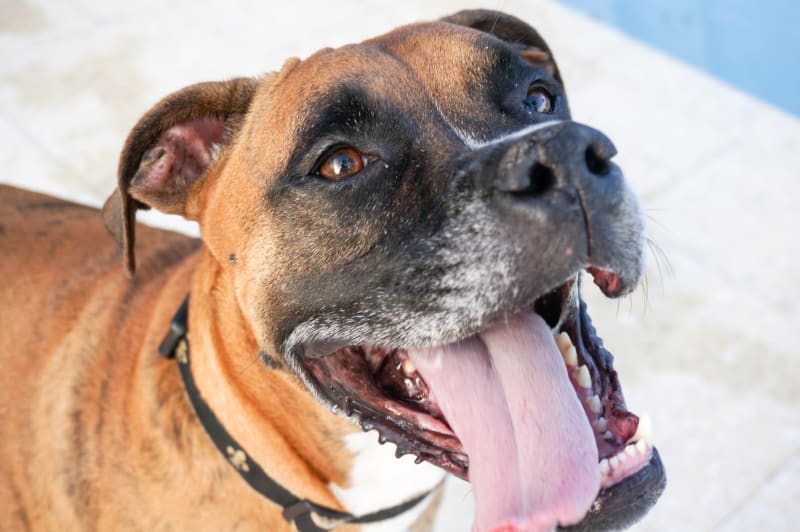Dealing with a dog’s smelly breath involves identifying and addressing the underlying cause. Here are some common strategies to help improve your dog’s breath:
1. Regular Dental Care
- Brushing: Brush your dog’s teeth regularly using a toothpaste specifically designed for dogs. Daily brushing is ideal, but even a few times a week can make a difference.
- Dental Chews: Provide dental chews or toys designed to reduce plaque and tartar buildup. They can help clean teeth and freshen breath.
- Professional Cleanings: Schedule regular veterinary dental check-ups and cleanings. Your vet can remove tartar and check for any dental issues.
2. Diet and Nutrition
- Quality Food: Feed your dog high-quality, well-balanced food. Some dog foods are specially formulated to improve oral health.
- Additives: Consider adding dental health additives to your dog’s water or food. There are products designed to reduce plaque and freshen breath.
3. Regular Vet Check-Ups
- Oral Health: Regular vet visits are crucial for monitoring your dog’s oral health. Your vet can detect issues like gum disease, tooth decay, or infections that might be causing bad breath.
- Underlying Conditions: Smelly breath can sometimes indicate underlying health issues such as kidney disease, diabetes, or gastrointestinal problems. A vet can help diagnose and treat these conditions.
4. Home Remedies
- Water Additives: Use water additives designed to improve oral health and freshen breath. These can be added to your dog’s drinking water.
- Dental Sprays: There are dental sprays available that help reduce bad breath and kill bacteria.
5. Monitor What They Eat
- Avoid Human Foods: Don’t feed your dog table scraps or foods that are not designed for dogs. Some human foods can contribute to bad breath.
- Chewing on Safe Objects: Provide safe chewing options that can help clean your dog’s teeth and massage their gums.
6. Check for Foreign Objects
- Inspect Mouth: Regularly check your dog’s mouth for foreign objects or signs of injury. Sometimes, something stuck in their teeth or gums can cause bad breath.
7. Hydration
- Fresh Water: Ensure your dog has access to fresh, clean water at all times. Proper hydration helps maintain oral health.
If your dog’s bad breath persists despite these measures, or if you notice other symptoms like difficulty eating, swollen gums, or changes in behavior, consult your veterinarian. They can provide a thorough examination and appropriate treatment based on the specific cause of your dog’s smelly breath.

